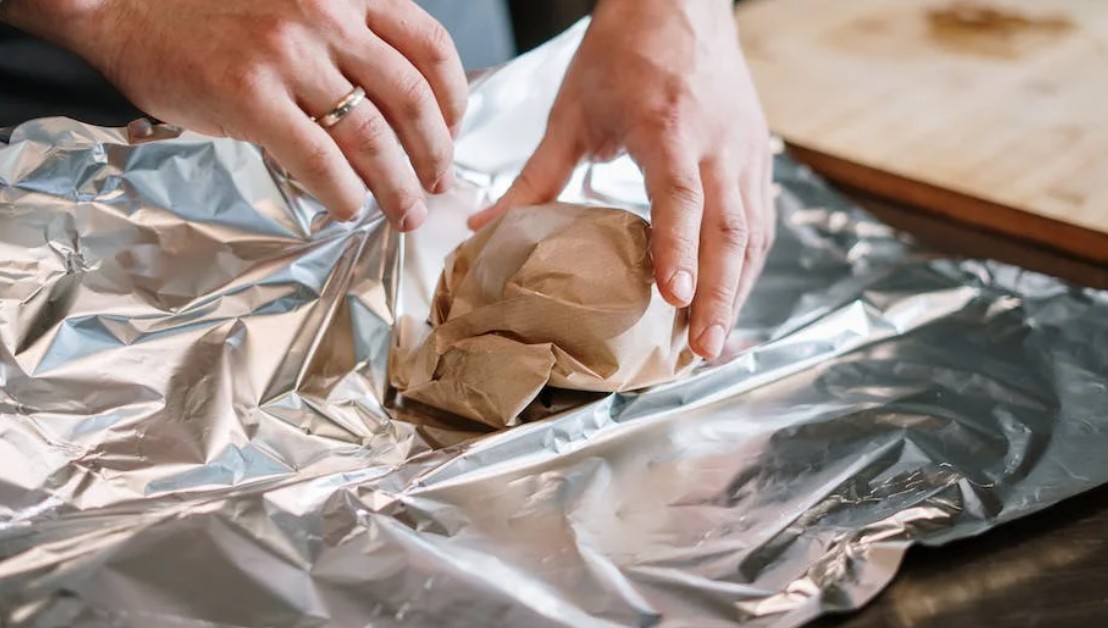Stop Wrapping Food In Tinfoil And Cooking It, Here’s Why

If you’re someone who frequently uses aluminium foil to bake fish, roast vegetables, or prepare meat for dinner, you might want to reconsider this habit. Research has shown that some of the foil can leach into your food during the cooking process, and this can potentially be harmful to your health.
Aluminium is not just found in foil – it is also a popular material for cookware, and is commonly used in developing countries for pots, pans, and even large serving spoons. Copper used to be the go-to material for these purposes, but aluminium has since taken its place due to its lower cost and easier cleaning. However, while cooking with aluminium pots or pans is generally not a problem, wrapping food in aluminium foil and placing it in the oven can be more problematic, particularly when it comes to acidic or spicy foods cooked at high temperatures.
The human body is able to efficiently excrete small amounts of aluminium, and the World Health Organisation has established a safe daily intake of 40mg per kilogram of body weight per day. However, most people are exposed to and consume much more aluminium than this recommended amount. Aluminium can be found in a variety of sources, including corn, yellow cheese, salt, herbs, spices, tea, and even in some pharmacological agents like antacids and antiperspirants. It is also used in the purification process of drinking water through the use of aluminium sulfate.
Scientists are currently studying whether excessive aluminium intake may pose threats to human health. High concentrations of aluminium have been detected in the brain tissue of Alzheimer’s disease patients, and some studies have suggested that high aluminium intake may be harmful to those with bone diseases or renal impairment. It has also been shown to reduce the growth rate of human brain cells.
Given these potential risks, it is important to be mindful of aluminium concentration when cooking. Aluminium pots and other cookware are often oxidized, creating an inert layer that prevents the aluminium from leaching into food. However, this layer can be worn away through scrubbing, leading to aluminium leaching into the food. To avoid this, it is recommended to boil water in new aluminium pots several times until the base becomes matte. This creates a natural oxidation that prevents leaching and is actually better for your food and health, despite the pots looking shinier when scrubbed clean.
On the other hand, aluminium foil cannot be treated in this way and should therefore be avoided when cooking. Research has found that the migration of aluminium into food during the cooking process when using aluminium foil is above the permissible limit set by the World Health Organisation. Aluminium is more likely to leach into acidic and liquid foods, such as lemon and tomato juice, rather than those containing alcohol or salt. The leaching process is further intensified when spices are added to the food being cooked in aluminium foil. Acidic foods in particular can cause aluminium to dissolve into the food at a faster rate.
Given these findings, it is advisable to use glassware or porcelain when preparing baked dishes instead of aluminium foil. While it is safe to wrap cold food in aluminium foil, it should not be left for long periods of time as the food can spoil. Overall, it is important to be aware of the potential health risks associated with aluminium and to make informed choices about the materials used in your cooking and food preparation.

